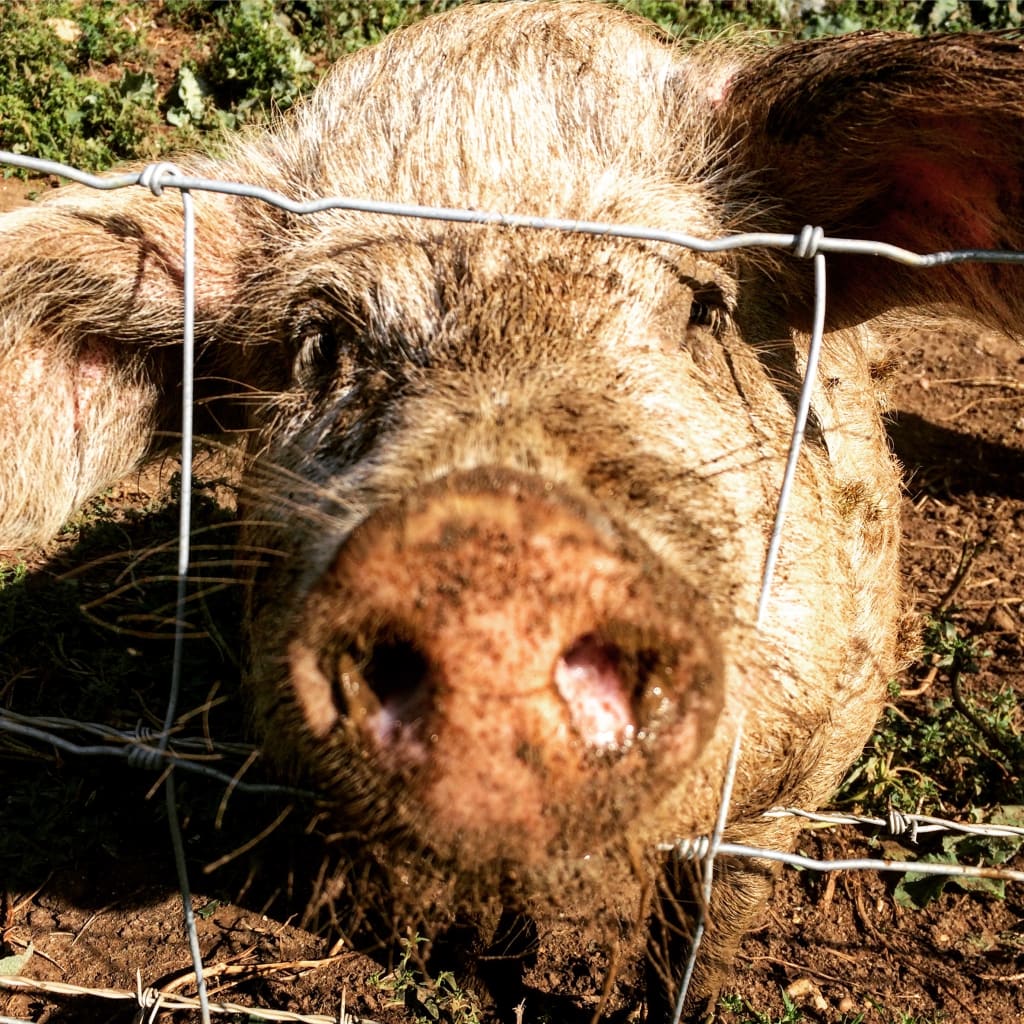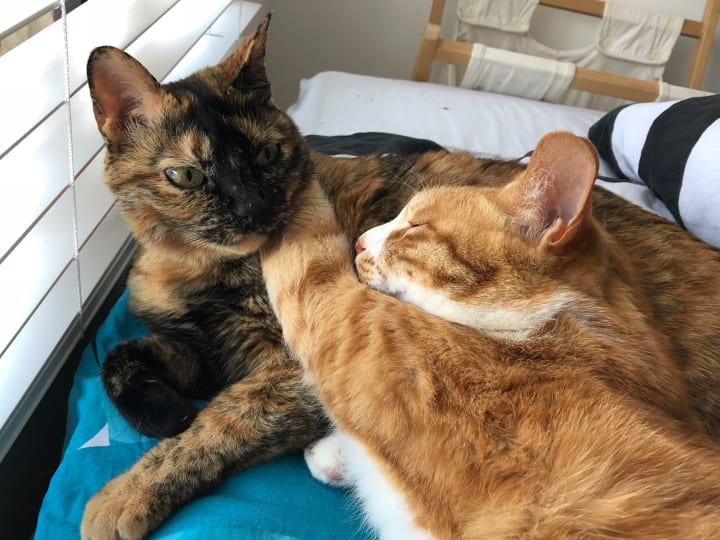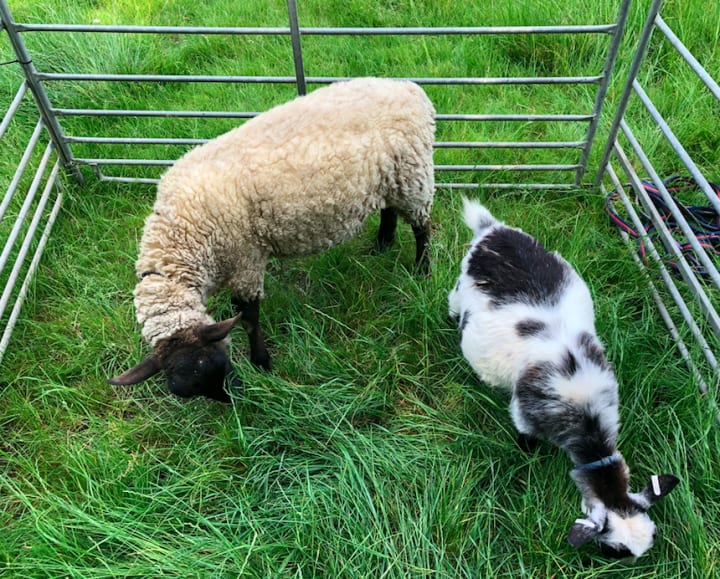The Language of Consent
Do we choose not to hear it?

I have been thinking a lot about consent lately; it’s become a bit of a buzzword and that’s no bad thing.
As an educator, I generally think about consent in terms of sex education and the fact that still, in 2018, consent is not explicitly taught to primary aged children.
I could go on. But recently I have been thinking about consent in a very different way; I have been thinking about animals.
Vegans talk a lot about animals being unable to give consent: humans drink their milk, eat their flesh, and take away their babies, but—obviously—since animals can’t talk, they cannot give their consent.
But it dawned on me that they can—and do—give and withhold their consent. Dramatically.
The fact is, I know when my cat is happy and when she’s not; she tells me. She purrs, or wags her tail, meows at me in different ways. If I am doing something she likes she paws at me to keep going and if not, she bats me away or moves herself out of my reach. Often, I can even tell what she wants by the expression on her face, her body language or the look in her eyes.
She gives and withdraws her consent. She doesn't need to speak English; she communicates with me just fine.
Eyes, Full of Expression

Photo credit: Munjeeta Sohal
Have you ever seen a video of a farmer peacefully taking a calf from its mother? Or a pig or chicken or goat willingly going to slaughter?
Usually what we see is a scene straight out of a horror movie.
Mothers who will do anything they can to prevent their baby being taken away—again.
Nonhuman animals—who know what is happening, because they can see and hear death all around them—fighting desperately for their lives.
Blue eyes, brown eyes, grey eyes, green eyes widened in terror. Or downcast and frozen, the light in them dimming as the last drops of hope ebb away.
Running away, running towards. Hooves slipping on blood. Mouths gasping for air. Screaming. Panting. Bucking. Jumping.
These responses are not responses of consent. These are the responses of animals who do not want to be separated, who do not want to die.
Surely humans—who see ourselves as the most intelligent of all the animals—can see that? Surely we can see that what we are doing is inherently wrong?
We understand these feelings; we can empathize. As a species we fight tooth and nail for our own lives and for the lives of those we love. We are so often outraged at the thought of parents and children being separated and by unjust deaths of innocents. In the west, we vocalize our disdain for cultures that eat dogs.
Well, the same thing happens every day, only it’s ok, because the animals it’s happening to don’t look quite like us, don’t speak our language and aren’t our pets.
Who gave us the right to make these choices for these creatures against their will?

Photo credit: Munjeeta Sohal
About the Creator
Munjeeta Sohal
I suffer from wonderlust 🤯
Reader 📚 writer 📝 truth-seeker 👁 traveller 🚀 foodie 🌶 (over) thinker 🤯 vegan 🌱 feminist 💪🏼 t1 diabetic 💉 teacher 👩🏻🏫 sun-worshipper 🌞
Head-butting my way through life 🐑






Comments
There are no comments for this story
Be the first to respond and start the conversation.